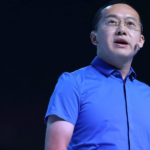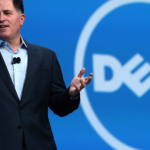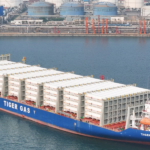Hyperloop One, the ambitious transportation company aiming to revolutionize transit through high-speed tube-encased lines, is reportedly shutting down after facing significant challenges. Despite raising over $450 million since its inception in 2014, the startup struggled to turn its futuristic vision into reality.

Key Points:
- Funding and Evolution: Hyperloop One attracted attention with its vision of transporting passengers and freight at airplane-like speeds. The startup raised substantial funding, with more than $450 million invested since 2014. It initially gained momentum by building a test track near Las Vegas.
- Rebranding and Strategic Shift: Formerly known as Virgin Hyperloop One after Richard Branson’s Virgin invested, the company rebranded and shifted its focus to cargo transport rather than passenger travel. This decision led to the removal of Virgin’s branding.
- Financial Struggles: Despite its early promise, Hyperloop One faced financial challenges. The company laid off most of its employees and is now in the process of selling its remaining assets, including the test track and machinery.
- DP World’s Involvement: Dubai-based conglomerate DP World, which has backed Hyperloop One since 2016 and owns a majority stake, is reportedly set to acquire the startup’s remaining intellectual property.
- Industry Hurdles: The hyperloop industry, conceptualized in Elon Musk’s 2013 white paper, has faced hurdles, and Hyperloop One failed to secure contracts for building a functional hyperloop. Other challenges included controversies involving co-founders and legal issues.
- End of Operations: Hyperloop One’s Los Angeles office has been closed, and the majority of its employees laid off. The remaining workers, involved in overseeing the asset sale, are expected to conclude their employment by December 31, 2022.
- Industry Landscape: While Hyperloop One faced setbacks, other hyperloop companies, such as Hardt Hyperloop, Hyperloop Transportation Technologies Inc., and Swisspod Technologies, continue to work on prototypes, highlighting the ongoing interest in futuristic transportation solutions.
Conclusion: Hyperloop One’s decision to cease operations underscores the challenges faced by companies attempting to bring groundbreaking transportation technologies to fruition. The struggles of the hyperloop industry, despite initial enthusiasm, highlight the complexities and obstacles in reshaping traditional transit methods.









